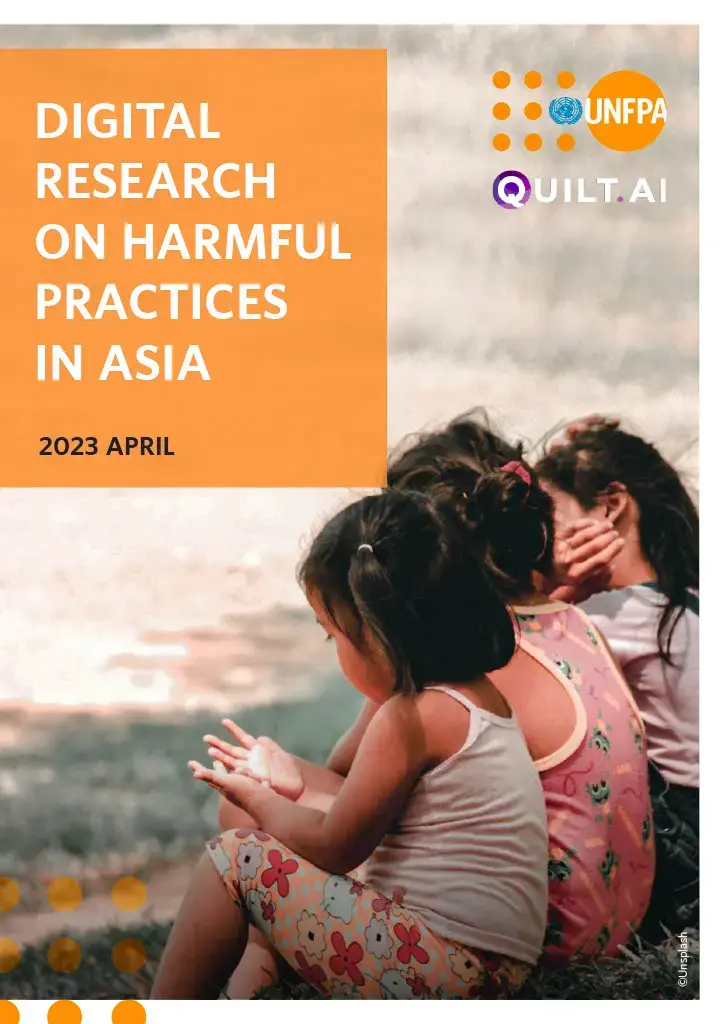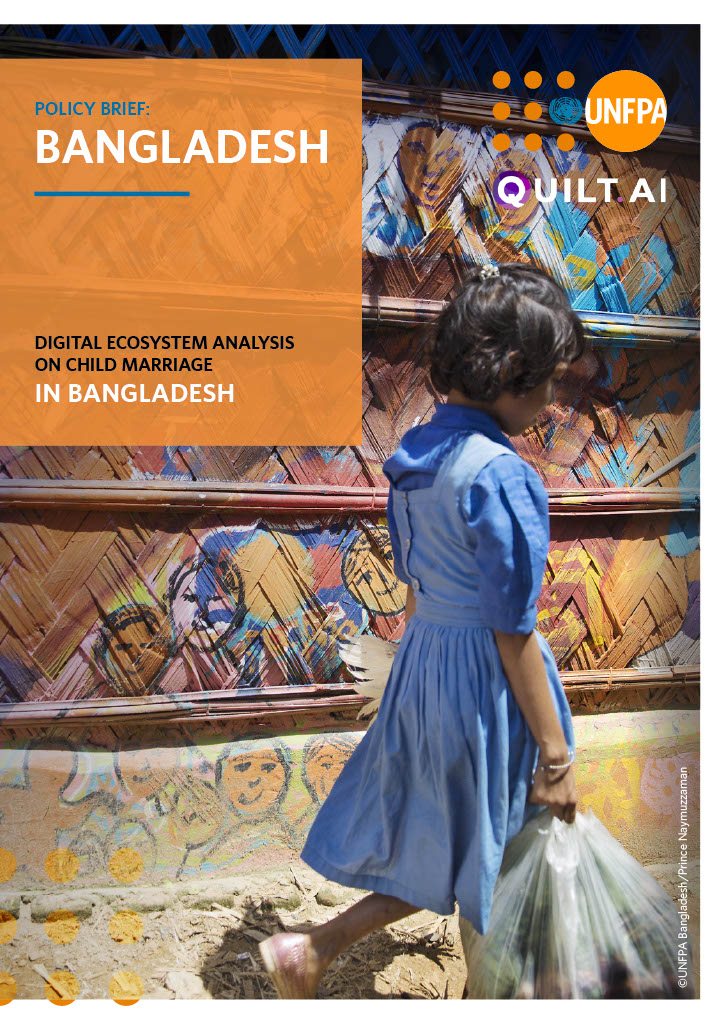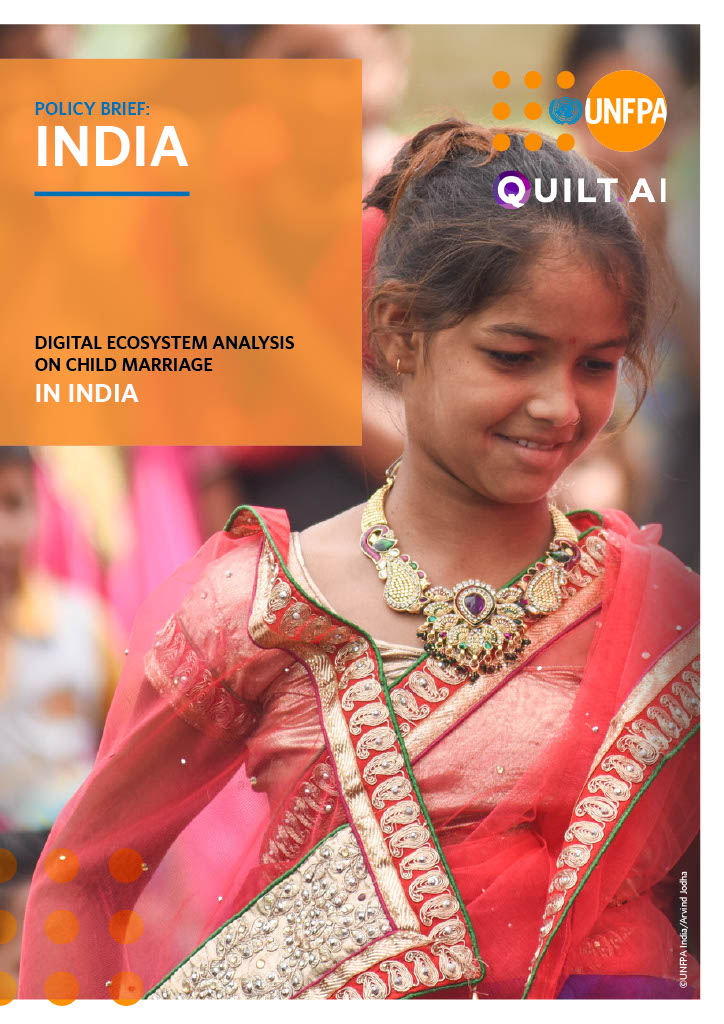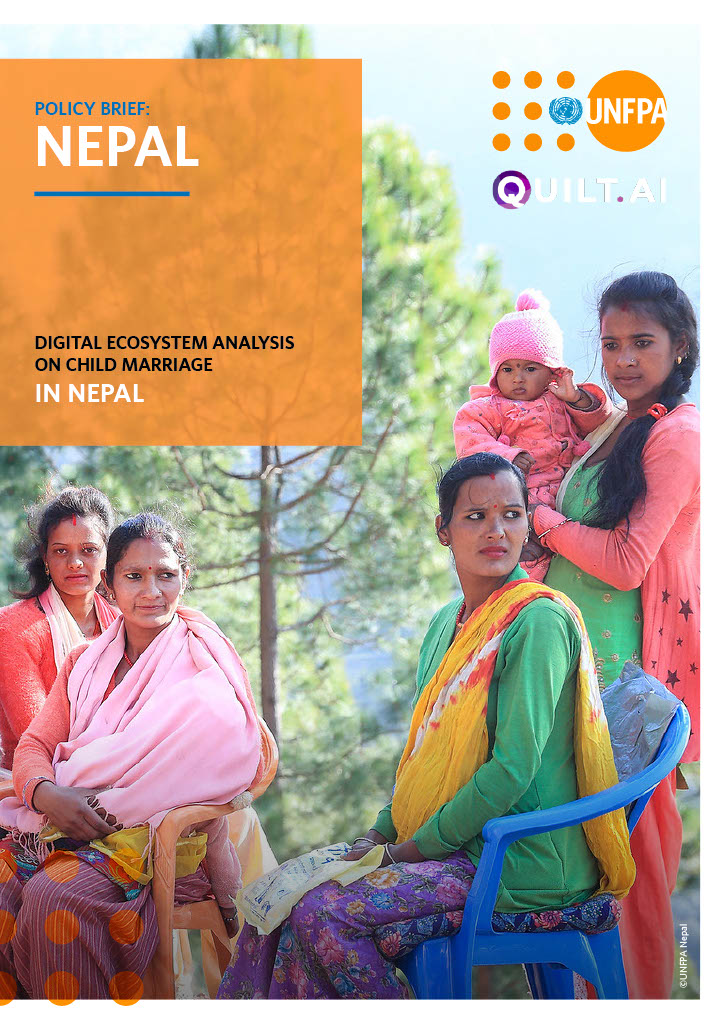Harmful practices are defined as “discriminatory practices committed regularly over such long periods of time that communities and societies begin to consider them acceptable”. This includes practices such as child marriage and son preference, which are internationally recognized as human rights violations.
Despite these practices being universally banned, millions of girls and boys experience them in some form, but girls are more vulnerable. About 650 million girls and women today were married as children. Early marriage hinders a girl’s future by preventing her from going to school and forces her into childbearing at a young age. Early marriage is a result of multiple factors – poverty, lack of access to education, gender and social norms.
Quit.AI, in partnership with the UNFPA Asia Pacific Regional Office, conducted a digital research on harmful practices, specifically child marriage and GBSS, in chosen geographies including Bangladesh, China, India, Nepal and Vietnam. The research includes a digital ecosystem analysis to understand people’s perceptions, attitudes and behaviours around harmful practices; an influencer mapping to identify emerging online voices, leaders and related campaigns; and a digital footprint analysis for stakeholders to provide recommendations that they are reaching the target audience in providing support or information about harmful practices.
| South Asia | Bangladesh | India | Nepal |
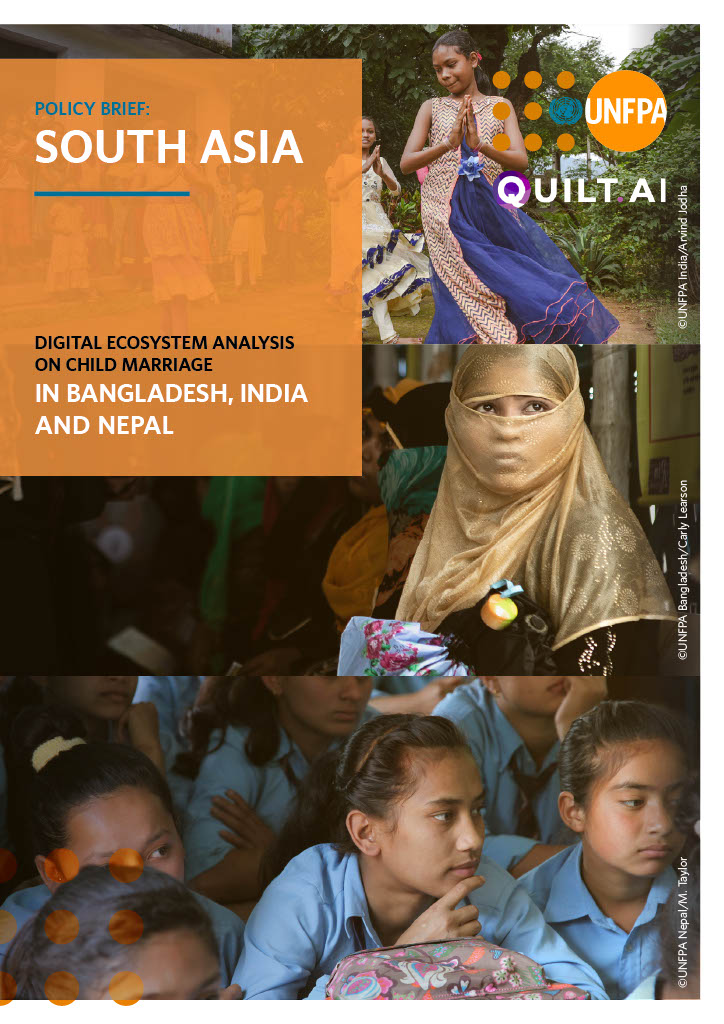 |

